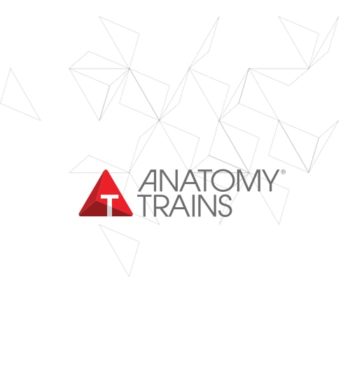Thank you for your Interest! Registration for this class is now closed. Please email info@anatomytrains.com with any questions.
We are thrilled to bring to you Anatomy Trains 12 Days of Christmas Masterclass Series, showcasing world renowned thought leaders in fascia, anatomy, & body-minded movement. With this amazing lineup, it will be hard to pick just one to attend!
Each two hour Masterclass will be presented live over zoom – we encourage you to join us live! We will have exclusive contests for those who attend live, with fun prizes awarded to the winners. However if you cannot attend live, you can relax in the knowledge that each webinar will be recorded and the recording will be made available for you to enjoy for 45 days.
Please note: To ensure a high quality student experience, registration will close December 30th at 8PM EST
Webinar description:
From homeostasis to the interoceptive allostatic load. Relevance of the fascia in body movement
We define fascia as an omnipresent, highly hydrated, richly innervated, vascularized and contractile capacity network- a prodigious complex biological system, which provides a mechanoreceptive information to the body, facilitating the communication, interaction, adaptation and protection. Fascia, as a part of the somesthetic nervous system, emerging as a first-order “sensory organ” which, through the sophisticated synergy, facilitates the physiological modification of other structural and functional body systems supporting the entire body in its vital functions (Pilat 2021). The interoception is a homeostatic image of the physical condition of the body and the fascial tissue manifests as the safeguard of body homeostasis.
The alteration of the basic body activities, as the mechanotransduction (Humphrey 2014) (mechanisms by which cells convert mechanical stimulus into electrochemical activity), is critical for organ development and function, and can trigger pathological processes giving rise to inflammatory, autoimmune, degenerative and tumor changes (Jaalouk & Lammerding 2009). The patomechanical process of the musculoskeletal system and related to its dysfunction and pain, suggests the presence of important anatomical and neurophysiological changes that involve the fascial tissue. Pain and hypersensitivity may be induced by the activation and/or sensitization of peripheral myofascial nociceptors by endogenous substances (Mense & Hoheisel 2016). Small diameter mechanoreceptors fibers (Aδ and C) carry the homeostatic afferents of all the body tissues. Interoceptive awareness provides a measure of sympathetic and parasympathetic activity, as well as, a potential marker for deficits in self-regulation and can modulate the exteroceptive representation of the body. The interaction of these systems could act in an integrated way to form a coherent and integrated body map (body matrix).
The densification of the extracellular matrix, could lead to loss of tissue homeostatic equilibrium. Consequently, a repetitive and/or prolonged nociceptive stimulus of peripheral origin may induce central sensitization and/or altered supraspinal modulation of afferent stimuli, thus, episodic pain may eventually become a chronic disease (Mense & Hoheisel 2016). This homeostatic, biomechanical and biochemical imbalance could be interpreted as a negative allostatic deregulation, and be governed by the principles of allostatic model, that is, established in a systemic and predictive way (Sterling 2004).
Allostatic loading can trigger negative hedonic assessments of interoceptive afferents and implement aversive and stress responses by the nervous system (neuroimmune response) (Paulus et al. 2009). The neural substrate that represents the
pathophysiological condition of myofascial dysfunction is able to predict allostatic load, and thus trigger neuroimmunological responses that modify tissue homeostasis, contributing to the allostatic tissue load (Pinho-Ribeiro 2016).
Thus, changes in the fascial system and its innervation could modify the cortical and interoceptive representation of our patients, causing imbalances in the systems of modulation of central responses to the peripheral stimuli. In such a way facilitating interoceptive allostatic loading, central sensitization, and chronic pain (Craig, 2003).
Webinar schedule:
Thursday, December 31st: 10:00 AM – 12:00 PM Eastern Standard Time, US


